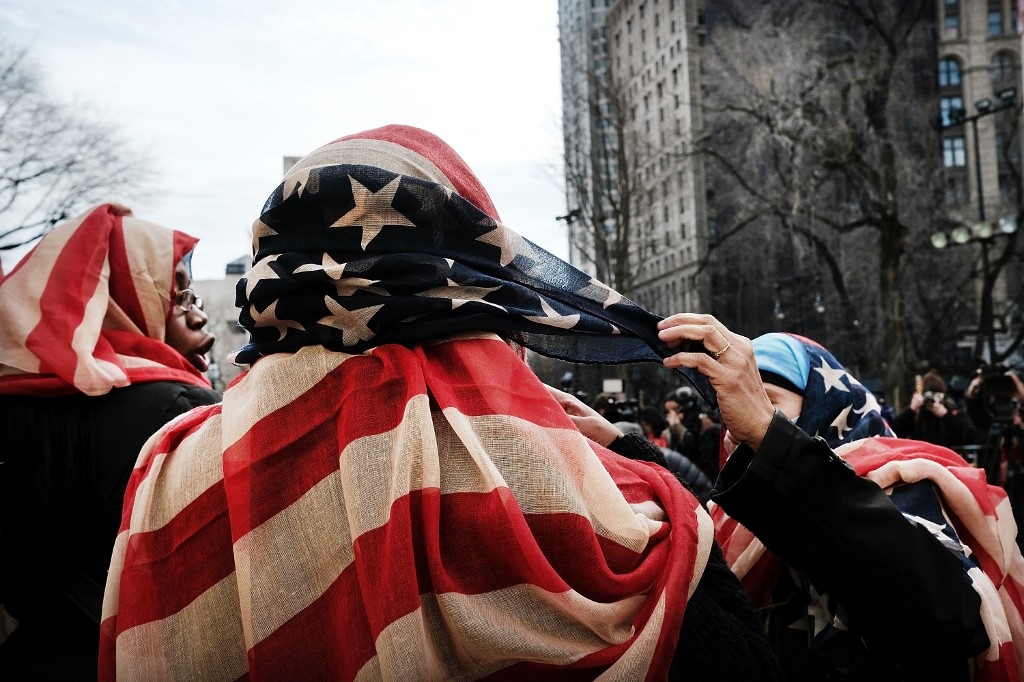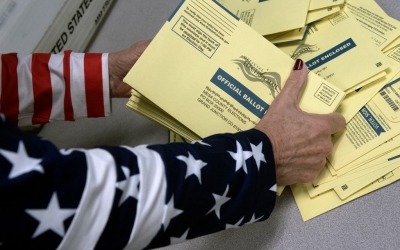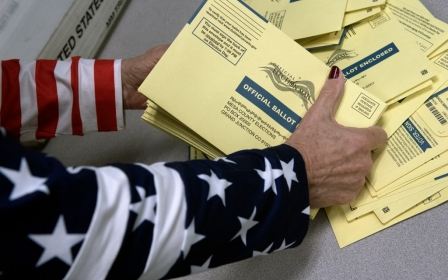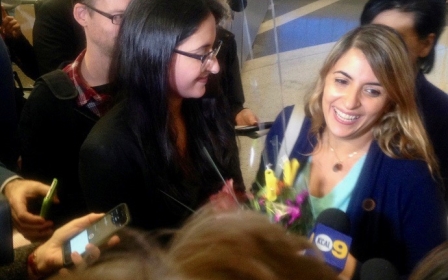Why the Muslim vote for Republicans grew in 2022 midterm elections

More Muslims shifted to the right in this year’s midterm elections, compared to how they voted in the 2018 midterms.
In the 2022 midterm election, 28 percent of Muslim voters voted Republican, which is an 11 percent increase from the 2018 midterms, Wall Street Journal exit polling revealed. Overall 70 percent of Muslims voted Democratic.
New MEE newsletter: Jerusalem Dispatch
Sign up to get the latest insights and analysis on Israel-Palestine, alongside Turkey Unpacked and other MEE newsletters
The new findings are consistent with previous elections. In an Associated Press exit poll, it was shown that more Muslims voted for Donald Trump in 2020, compared to 2016.
In its own poll, the Institute for Social Policy and Understanding (Ispu), an American Muslim research organisation, found that from 2019 to 2020, the percentage of Muslims who increased their approval rating of then-president Trump jumped from 16 percent to 30 percent.
According to Habiba, who didn’t want her last name being used, much of this change has to do with the Democrats not representing Muslims “properly”, she said.
“The Democratic Party doesn’t align with our Islamic values. Even the Muslim candidates and the Muslims who have been elected are very liberal,” Habiba told Middle East Eye.
The young Arab American from New York says she voted Democrat in the 2018 election but changed her party to Republican just last year.
“I felt like I was compromising my beliefs. And sometimes I still feel like I am doing that because honestly, the Republicans don’t completely represent Muslims either. They are just more conservative. I think that is who we should be voting for until we find better candidates that truly represent us.”
Emphasis on 'traditional values'
According to Soren Jordan, an associate professor of political science at Auburn University, without survey data on religious identification as well as opinions on family values - beyond the exit poll data - “all we can do is note the increase in support”.
“Anecdotally, it does seem that support has increased among Muslims for Republicans, especially as Trump eased on anti-Muslim rhetoric since 2017. And it is extremely common for support to increase for the out-party of the president in a midterm election year,” Jordan said.
“If support increased among Muslims, it might also be because they are backlashing against the party of the president or against economic conditions. It is impossible to know for sure without better data on opinions, which we will not have for some time.”
'There’s an important emphasis on traditional values in Islam'
- Robert McCaw, Cair
In the Council on American-Islamic Relations' (Cair) exit poll after the midterms, 58 percent of Muslims voted for Democrats; 16 percent voted for Republican candidates; and 22 percent declined to answer which party they opted for.
According to Robert McCaw, director of government affairs at Cair, more often than not, when people decline to say which party they voted for, it’s the Republican Party.
“There’s an important emphasis on traditional values in Islam. American Muslim voters also do not fit into a left or right political paradigm, and no party can ever take the support of the community for granted,” he told MEE.
He explained that more and more Muslims coming out to vote in the elections, regardless of which party they voted for, is not an “overnight success story”.
“Success breeds success. And for the past several decades, American Muslim leaders and institutions have been heavily investing in voter education, registration, turnout, and inspiring community members to run for office. The more Muslims who run for office inspire the next cohort of potential Muslim candidates to run for office, which further turns out Muslim voters,” he said.
“What we’re witnessing is the ongoing political development and civic engagement of the American Muslim community to reach its greatest potential in American politics, and we’re not there yet. But we’re seeing the results of decades worth of work.”
'Witnessing next steps'
This midterm election also had 145 Muslim candidates running for local, state, and federal office in the general election, including 48 state legislative candidates running in 23 states. According to Cair, a record number of Muslims across the US won in the midterm elections.
Muslim Americans won at least 83 seats across local, state, and federal elections and the number is expected to increase once all of the results are ready.
One candidate from Georgia, Ruwa Romman, made history as the first known Muslim and Palestinian woman elected to the Georgia House of Representatives. Munira Abdullahi became the first Muslim elected to the Ohio State Legislature. Mana Abdi was elected as the first Somali-American lawmaker in Maine.
"We are witnessing the next step in the American Muslim community’s political transformation from marginalised voices that were sidelined, or worse, to decision-makers,” Cair national executive director, Nihad Awad, said.
“These newly elected officials are building upon the success of our community’s decades-long investment in civic engagement, voter registration, and running for office."
Middle East Eye delivers independent and unrivalled coverage and analysis of the Middle East, North Africa and beyond. To learn more about republishing this content and the associated fees, please fill out this form. More about MEE can be found here.





